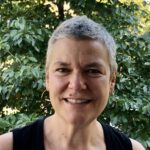“Well sometimes I don’t feel like I belong and that I’m taking up someone else’s space […] I don’t want to paint this big dark picture, but that’s the easiest way for me to describe it – that I’m occupying their space. [That’s] how sexism makes me feel”.
Everyday sexisms are part of the fabric of university life, they are built into the spaces we move through, the interactions we have, and the disciplines we work in. And yet they are almost entirely absent from university Gender Equity Plans, policies regarding sexual harassment and assault and discussions about workplace-based discriminations.
Partly, this is because of the slippery nature of everyday sexisms. That is, they happen in a moment, often unexpectedly, in a question, a comment, or glance; or in the way your idea might be ignored and then repeated by a cismale colleague to fanfare. (Editor’s note: Cis is short for cisgender and it’s a term that means whatever gender you are now is the same as what was presumed for you at birth.)
We see everyday sexisms when we look around at our workplaces, at their leaders, at those who have research only positions – and we don’t see people that look like us.
As three queer researchers who have all experienced everyday sexisms, we wanted to investigate if and how these are understood by universities, the extent to which they are experienced and to develop creative interventions that enable universities to address everyday sexisms differently. We developed our research project Understanding and Addressing Everyday Sexisms with this in mind, as well as with a focus on the intersectionality of experiences of sexism.
We applied for Australian Research Council funding to do this work, based on our pilot research during the start of the COVID pandemic, and no-one was more surprised than us to be successful in the heyday of the Morrison years. Our work uses the term ‘sexisms’, as we understand that such oppressions are experienced differently by people who identify as women as well as gender diverse people. Our research has four phases.
First, we completed an audit of every Australian public university website (N = 37) that identified where the concept of “gender equity” appears. We can share that our findings were that university websites tended to reproduce colonialities of gender, in that they siloed identity and gender equity to specific places. Second, we interviewed key stakeholders, such as complaints officers, women STEM leaders, and First Nations women academics.
These interviews served two key purposes – they helped us to develop vignettes about everyday sexisms that were used in phase three of the data collection for the project, a large-scale survey. The vignettes were designed to tap into the extent to which academic workers recognise sexisms in everyday interactions. The interviews also gave insight into experiences of everyday and structural sexisms from university workers.
The interviews revealed some of the ongoing issues, tensions and problems in relation to gender equity and higher education across disciplines as well as at the administrative levels of the university.
What we found here was disturbing in that the gendered and racialised experiences of participants highlighted how little is understood about microaggressions and how these accumulate to produce exhaustion and burnout.
The interviews also demonstrated that the conclusions Sara Ahmed draws in her book Complaint! ring true in the Australian context, where policy functions to victimise the complainant while universities rally round perpetrators – especially those who are seen to be ‘useful’ to the academy in terms of intellectual esteem and funding success.
We are currently working on phase three, which is the distribution of a large-scale survey we hope will capture how Australian academic workers experience and understand everyday sexisms. We are interested in how everyday sexisms play out differently within different university contexts. We are about to begin the final phase, a series of creative focus groups where we will be presenting our data-so-far and working together to develop responses to everyday sexisms.
If you are interested in participating in an online or a face-to-face creative focus group held in Sydney or Melbourne during early 2023, please contact us (email contacts below).
Dr Emily M. Gray, School of Education, RMIT University: emily.gray@rmit.edu.au
Professor Mindy Blaise, School of Education, Edith Cowan University: m.blaise@ecu.edu.au
Associate Professor Jacqueline Ullman, Western Sydney University: j.ullman@westernsydney.edu.au
- Please note: The picture at top is a stock image.







